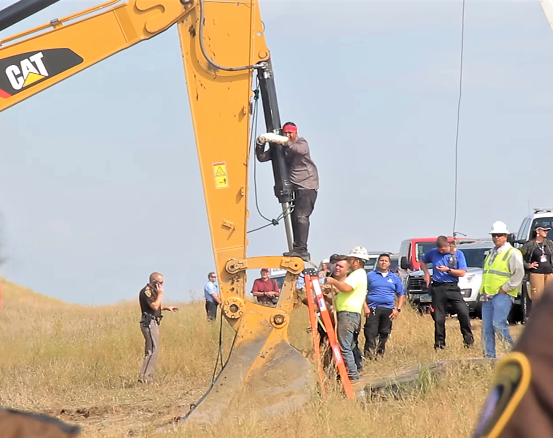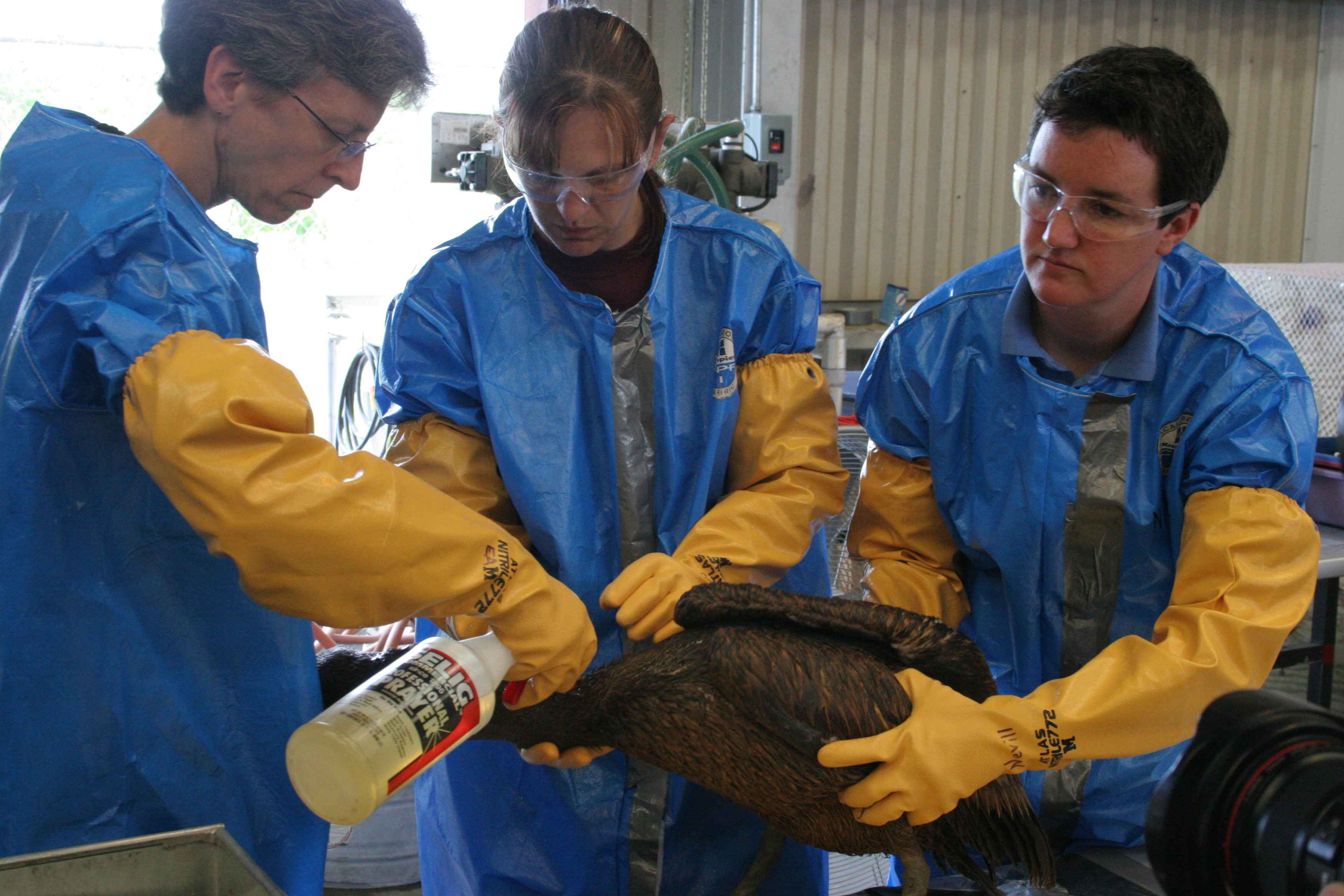As crews race to save oily beaches or prevent spills from happening at all, remember that violence against people, wildlife and natural systems is, for many, an acceptable evil, and the cost of modern convenience.
It’s a familiar story by now. For more than a week, southern California’s favorite tourist beaches have been soaking up tens of thousands of gallons of heavy crude oil released from a long, slow offshore pipeline leak. Cue the images of seashores and ecologically important wetlands globbed over with tarry blackness, and desperate sea birds rescued by volunteers wielding gloves and dish soap. Crews race to save what they can and clean up the mess, but on the whole, we Americans accept this as the sad, unfortunate, yet necessary cost of a modern industrial economy.
Surf City USA could be closed for weeks to come, because “[a]n estimated 126,000 gallons (572,807 liters) of heavy crude leaked into the waters off Orange County… The coastal areas off of Southern California are just really rich for wildlife, a key biodiversity hot spot… A petroleum stench permeated the air throughout the area.” Blah blah blah.
You know the drill. You’ve heard this before, multiple times, multiple spills. We “need the oil,” but it comes with a cost. This is part of the cost. To save money, companies and communities wait for pipelines to rupture and spill, coating everything for miles, making water undrinkable, unfishable. And then, only then, do “crews race” to save the bits that can be salvaged. Our society accepts this. Regretfully maybe, but what can you do, right? Nothing. Not if we want our cars, abundant food (cheap enough to waste 30-40% of the entire supply), the manufacture and cross-country transport of a vast array of goods (from robot vacuums to poop emoji themed bedroom slippers), home heating fuel and electricity for air conditioning, and plastic everything.
If only there were a way to live without the cost of the occasional yet regular oil spill! But there’s not, and if we have to choose, well, sorry wetlands and wild places, but you know how it is. One must have a sense of priorities.
Now, imagine if crews race ahead of time to prevent this from happening at all. Picture the communities that were left untouched by this ruination because it was stopped before it started. Why, those people would be superheroes!

These brave souls exist. They’re called water protectors, and whenever they gather and take action to prevent pipelines (which inevitably leak) from being built, they get beaten down by an alliance of oil companies and police, sometimes working hand in hand to defeat those who value clean water, breathable air, and living ecosystems.
According to The Intercept, an Enbridge spokesperson said that the company “supports the rights of individuals to protest lawfully and peacefully,” presumably as long as it doesn’t pose any actual challenge or effectively defend communities and ecosystems. For occasions when the danger seems greater than facing down sign-wavers and marchers who yell or plead and then go home at the end of the night, energy companies employ security teams that trained in much harder places, such as against Exxon Mobil protesters in Nigeria. Enbridge, for one, also directly pays for police training, wages and overtime, benefits, surveillance capabilities, meals, lodging, and equipment used to defeat people defending their land, as well as sharing intelligence about specific demonstrators and strategy coordination. This blurs a critical distinction between who the police should be working for (their constituents) and whose interests they are actually protecting (often, foreign companies).
Violence against people desperate to protect their landbase is another cost we simply accept, so long as it keeps that oil flowing in the land of the free, and the home of the brave.
Related: Extraction Has Victims


Join the conversation!